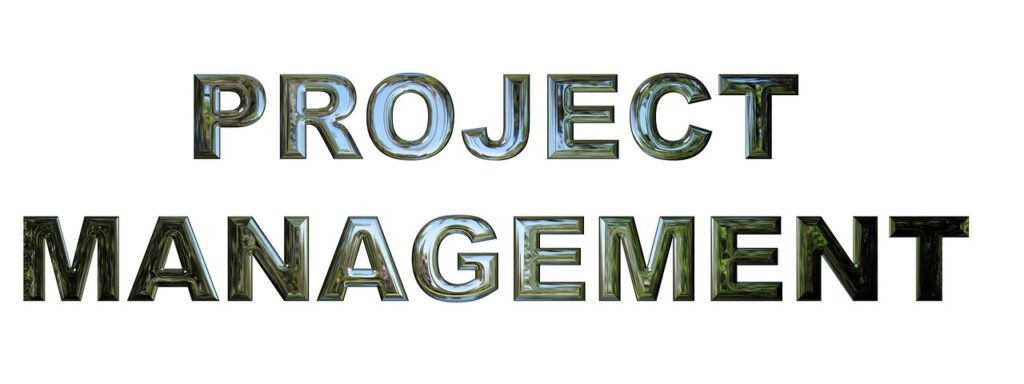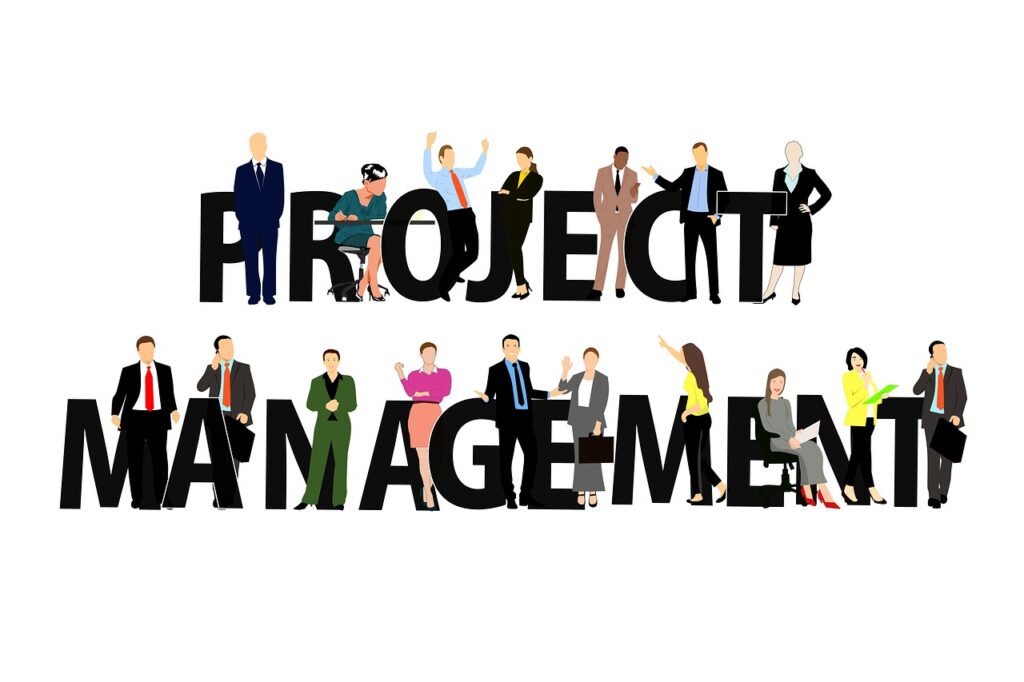Project management encompasses a wide range of skills that contribute to the successful execution of a project. These skills are crucial for project managers to effectively lead their teams and ensure projects are delivered on time and within budget. Moreover, the versatility of these skills enables project managers to excel in various industries and job roles.
The key project management skills include communication, time management, leadership, risk management, problem-solving, and technical skills. These skills allow project managers to build strong relationships with team members, stakeholders, and clients, effectively prioritize tasks, make sound decisions, and manage risks and challenges that may arise during a project’s lifecycle.
By mastering these essential project management skills, project managers can enhance their effectiveness in managing diverse projects across different industries, ultimately contributing to the overall success of their organization.
Platforms and Colleges To Learn Project Management

Project Management Degrees from SNHU
BS in Project Management, MBA in Project Management, MS in Project Management & Operations

Project Management Certificates from University of Washington
Certificate in Project Management

Project Management Courses from edX
Project Management Courses and Bootcamps
Top Project Management Skills
Communication
Clear and effective communication is a crucial aspect of successful project management. Project managers must master various communication skills to ensure that project teams are aligned, stakeholders are informed, and tasks are executed efficiently. Three essential communication skills in project management are verbal communication, written communication, and active listening.
Verbal communication involves the ability to articulate ideas and instructions clearly and concisely. Project managers must be skilled in conveying messages and engaging in productive discussions with team members. Written communication, on the other hand, pertains to creating well-structured emails, reports, and other project documentation. This skill ensures that essential information is shared accurately and comprehensively, reducing the chances of miscommunication. Active listening, the third essential communication skill, entails giving full attention to others, asking clarifying questions, and providing appropriate feedback. This skill is vital in fostering collaboration and understanding among team members.
Improving communication skills in project management can be accomplished through various strategies. These may include participating in workshops or courses, engaging in role-playing exercises, practicing mindfulness and empathy, and seeking feedback from peers or mentors. By continually honing these skills, project managers can enhance their overall effectiveness and contribute to project success.
Time Management
Effective time management is essential in ensuring successful project completion. It allows project managers to allocate resources efficiently, meet deadlines, and maintain control over the project’s progress. Some time management techniques employed by successful project managers include prioritization, task delegation, and scheduling and planning.
Prioritization involves identifying the most critical tasks and focusing on them first. This approach ensures that essential objectives are met, even when faced with limited resources or tight deadlines. Task delegation, another vital time management technique, entails assigning tasks to team members based on their skills and availability. This not only allows project managers to focus on their primary responsibilities but also promotes accountability and efficient use of resources. Lastly, scheduling and planning involve creating a clear roadmap for the project, outlining milestones, deadlines, and dependencies. This technique ensures that all team members have a comprehensive understanding of the project timeline and their responsibilities.
To develop effective time management skills in project management, consider implementing the following tips: set realistic goals, break down complex tasks into smaller, manageable components, utilize project management tools and software, and regularly review and adjust plans as needed. By mastering time management, project managers can significantly enhance their productivity and project outcomes.

Leadership
Strong leadership skills are of utmost importance in project management, as they enable project managers to guide their teams effectively and navigate challenges that arise throughout the project’s lifecycle. Successful project managers often exhibit key leadership qualities such as confidence, decision-making, and the ability to motivate and inspire team members.
Confidence is crucial in ensuring that project managers can assertively communicate their vision and expectations to the team. Decision-making, another critical leadership quality, entails making informed choices that drive the project forward while considering potential risks and benefits. Project managers must also be adept at motivating and inspiring their teams, fostering a positive work environment that encourages collaboration, innovation, and a strong sense of commitment to the project’s goals.
To cultivate leadership skills in project management, consider taking the following steps: engage in continuous learning through courses, workshops, or mentoring programs; seek feedback from team members and peers to identify areas for improvement; practice self-reflection to understand personal strengths and weaknesses; and develop emotional intelligence to better understand and manage emotions, both within oneself and among team members. By strengthening leadership skills, project managers can significantly enhance their effectiveness and contribute to the overall success of their projects.
Risk Management
Risk management skills are essential in project management, as they enable project managers to identify, assess, and mitigate potential threats that could jeopardize the project’s success. Effective risk management ensures that projects remain on track, within budget, and aligned with their objectives.
The process of risk management involves three main steps: identifying potential risks, assessing their impact and likelihood, and implementing strategies to mitigate or minimize their effects. Identifying risks requires vigilance and foresight, as well as a comprehensive understanding of the project’s scope, objectives, and potential obstacles. Assessing risks involves evaluating their potential consequences and determining the probability of their occurrence. Finally, mitigating risks entails developing and executing strategies to address identified risks, such as reallocating resources, adjusting timelines, or implementing contingency plans.
Improving risk management skills in project management can be achieved through various techniques, including attending training courses or workshops, staying up-to-date with industry trends and best practices, and learning from past experiences and case studies. Regularly practicing risk identification, assessment, and mitigation throughout the project lifecycle can also help project managers enhance their risk management skills and contribute to the overall
Technical Skills in Project Management
Technical skills play a vital role in project management, as they equip project managers with the necessary tools and knowledge to effectively manage projects within their specific industry or domain. Some essential technical skills in project management include knowledge of project management software and industry-specific technical expertise.
Knowledge of project management software is crucial in managing project timelines, resources, and communication effectively. Project managers should be proficient in using various tools and platforms, such as Microsoft Project, Asana, or Trello, to streamline project processes and maintain a comprehensive overview of project status. Industry-specific technical expertise, on the other hand, enables project managers to understand the nuances and requirements of their particular sector, ensuring that projects are executed in alignment with industry standards and best practices.
Developing and maintaining technical skills in project management can be achieved through several strategies, such as participating in training programs or workshops, staying up-to-date with industry trends, and engaging in continuous learning through online resources, books, or professional networks. By consistently enhancing their technical skills, project managers can increase their effectiveness and contribute significantly to the success of their projects.

Problem-Solving
Problem-solving skills are of great significance in project management, as they enable project managers to identify and address issues that may arise during the project’s lifecycle. Effective problem-solving skills are crucial in preventing minor issues from escalating into significant obstacles that can derail the project’s progress or compromise its outcomes.
The process of problem-solving in project management involves identifying potential or existing issues, analyzing their root causes, and developing appropriate solutions to address them. This may require project managers to think critically, adapt to changing circumstances, and collaborate with team members to devise innovative strategies that overcome challenges.
Enhancing problem-solving skills in project management can be achieved through various techniques, such as engaging in critical thinking exercises, participating in training programs or workshops, and learning from past experiences or case studies. Additionally, project managers can improve their problem-solving skills by cultivating a growth mindset, embracing challenges as opportunities for learning, and fostering a collaborative and open-minded team environment. By honing their problem-solving skills, project managers can better navigate challenges and ensure the success of their projects.
Adaptability and Flexibility
Adaptability and flexibility are essential qualities in project management, as they enable project managers to navigate challenges and respond effectively to changing circumstances. Projects often involve unforeseen obstacles, shifting priorities, or evolving requirements, and the ability to adapt and adjust plans accordingly is crucial to achieving project success.
Examples of how adaptability and flexibility can lead to project success include adjusting project timelines to accommodate unexpected delays, reallocating resources in response to changing priorities, and revising project goals or scopes to better align with evolving stakeholder expectations. By demonstrating adaptability and flexibility, project managers can ensure that their projects remain on track and achieve their desired outcomes, even in the face of challenges and uncertainties.
To cultivate adaptability and flexibility skills in project management, consider implementing the following tips: maintain an open-minded and curious mindset, be willing to let go of preconceived notions or assumptions, embrace change as an opportunity for growth, and practice active listening and empathy to better understand and respond to the needs of team members and stakeholders. By developing adaptability and flexibility, project managers can enhance their ability to navigate change and contribute to the success of their projects.
Negotiation
Negotiation skills play a vital role in project management, as they enable project managers to reach agreements and find solutions that benefit all parties involved. These skills are particularly important in managing stakeholder expectations, resolving conflicts, and securing resources or support for the project.
Successful project managers employ key negotiation techniques to achieve desired outcomes. Some of these techniques include active listening to understand the needs and concerns of all parties, preparing thoroughly by researching and gathering relevant information, and seeking win-win solutions that address the interests of all parties involved. Additionally, successful project managers maintain a balance between assertiveness and empathy, ensuring that their objectives are communicated clearly while respecting the perspectives of others.
Improving negotiation skills in project management can be achieved through various strategies, such as attending training courses or workshops, learning from experienced negotiators, and practicing negotiation techniques in real-life situations or role-playing exercises. By refining their negotiation skills, project managers can enhance their ability to navigate challenging situations and contribute to the overall success of their projects.
Conclusion
In summary, this blog has outlined the top project management skills crucial for success in the field, including communication, time management, leadership, risk management, technical skills, problem-solving, adaptability and flexibility, and negotiation. Developing these skills is essential for career advancement and personal growth, and we encourage you to continue honing them throughout your professional journey.
We invite you to explore additional resources and articles on pathways2advancement.org for further guidance and support in education and career paths. Our mission is to empower adult learners and non-traditional students with the tools and knowledge they need to make informed decisions and achieve their career goals. Let us be your partner in reaching new heights in your education and career.


